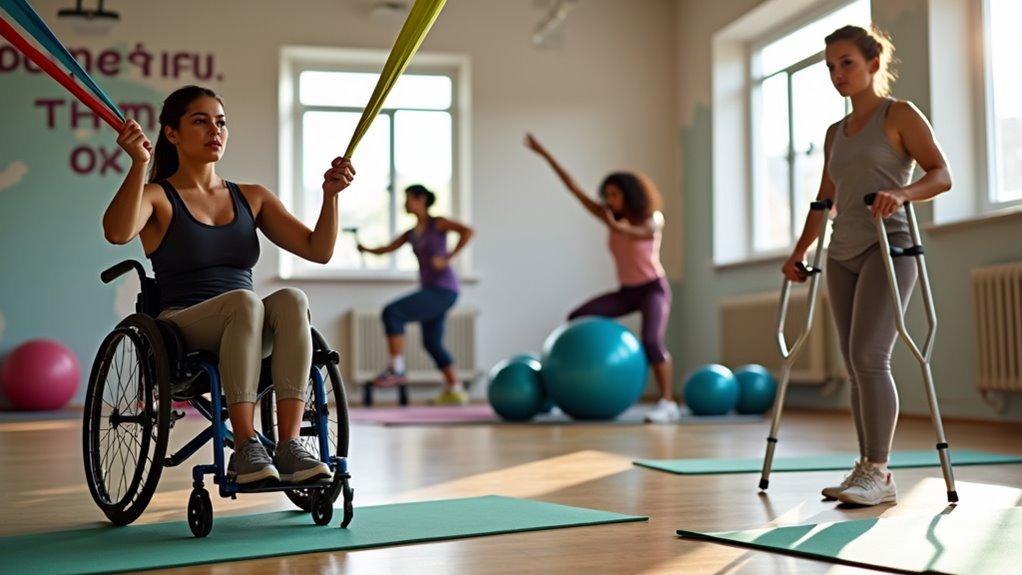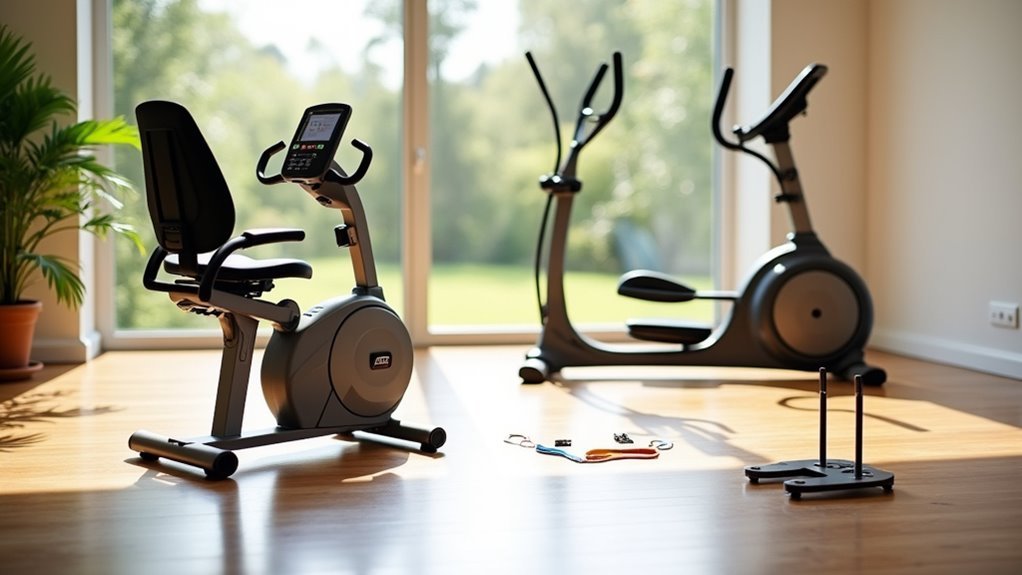Walking daily can dramatically boost your brain health and cut dementia risk by up to 50%. Try these five routines: a 20-minute morning walk for BDNF production, interval walking for sharper decision-making, nature walks to reduce brain-damaging stress hormones, social walking circles for essential cognitive engagement, and mindfulness walking meditation to increase memory center gray matter. These science-backed methods require minimal equipment and adapt to any fitness level while protecting your mental longevity each step of the way.
The 20-Minute Morning Brain-Boosting Walk

While many people reach for coffee to jumpstart their day, a 20-minute morning walk might be your brain’s best ally for long-term cognitive health. This simple physical activity stimulates blood flow to your brain and triggers production of brain-derived neurotrophic factor (BDNF), essential for memory and learning processes.
Morning walks activate vital brain chemicals for memory and learning that coffee simply can’t provide.
You’ll notice immediate benefits: reduced anxiety, improved mood from endorphin release, and enhanced mental clarity throughout your day. The brisk walking reduces oxidative stress, sharpening your focus when you need it most.
Beyond daily improvements, this routine contributes greatly to mental longevity. Regular morning walks reduce your risk of cognitive decline and dementia while improving sleep quality by regulating your circadian rhythms.
For overall health and brain protection, those 20 minutes represent your best investment in sustainable cognitive function.
Interval Walking for Enhanced Cognitive Performance
Unlike steady-paced walking, interval walking alternates between periods of higher intensity and recovery, providing your brain with significant cognitive advantages.
This aerobic exercise increases blood flow and oxygen to your brain, directly improving your decision-making and problem-solving abilities.
Commit to at least 30 minutes of interval walking several times weekly to experience notable improvements in memory and executive function.
The alternating pace stimulates your body to release BDNF, an essential protein that supports learning and overall brain health.
Research shows compelling protection against cognitive decline—regular interval walkers have up to 50% lower risk of developing dementia compared to sedentary individuals.
Nature Immersion Walks for Stress Reduction and Mental Clarity

Nature immersion walks offer a complementary cognitive benefit to interval training through a different mechanism entirely.
When you walk in natural environments, your cortisol levels markedly decrease, providing immediate stress reduction and anxiety relief.
You’ll notice enhanced mental clarity and improved cognitive function after just a short nature immersion walk. Your attention span expands and creativity flourishes in these natural settings.
More importantly, the feelings of connectedness and well-being you experience contribute to lasting mental health benefits.
The profound sense of unity with nature creates enduring psychological foundations that nourish long-term mental wellness.
Make these walks a regular practice, and you’ll develop greater resilience against depression and anxiety over time.
Even brief excursions into natural settings can yield measurable improvements in your overall well-being, making nature walks an essential component of any mental longevity routine.
Social Walking Circles to Combat Cognitive Decline
Social walking circles represent one of the most powerful interventions against cognitive decline, combining physical activity with meaningful human connection. You’ll experience enhanced cognitive function when you engage in these groups, as social interaction during walks stimulates mental clarity and decision-making.
| Benefit | Impact |
|---|---|
| Community | Decreases loneliness, improves emotional well-being |
| Consistency | Maintains routine, increases long-term adherence |
| Cognitive Protection | Reduces dementia risk by up to 50% |
| Physical Health | 31% lower mortality risk from all causes |
| Motivation | Greater commitment to regular activity |
Your participation in walking groups creates a positive feedback loop—the more you walk with others, the more likely you’ll continue, securing longevity benefits. This sustained activity protects your brain while the social connections fortify your mental health, making social walking a thorough strategy against cognitive decline.
Mindfulness Walking Meditation for Neural Plasticity

While moving through your daily routine, you can transform ordinary walks into powerful brain-enhancing exercises through mindfulness walking meditation. This practice fosters neural plasticity, allowing your brain to adapt and reorganize itself more effectively.
Research shows mindfulness walking increases gray matter volume in brain regions responsible for memory and emotional regulation. By paying deliberate attention to each step and your surroundings, you’ll reduce stress and anxiety by up to 30%, directly supporting your cognitive health.
The practice strengthens your attention span and executive function—crucial elements for mental longevity. As you incorporate mindfulness techniques into your walking routine, you’ll likely experience greater overall well-being and life satisfaction while combating depression.
This simple yet powerful practice offers substantial returns for your brain’s long-term health.
Frequently Asked Questions
How Long Should You Walk a Day for Mental Health?
You should walk 20-30 minutes daily for ideal mental health benefits, though even 10 minutes can improve your mood and reduce anxiety. Aim for at least 150 minutes weekly to enhance your overall mental well-being.
What Is the 6 6 6 Rule for Walking?
The 6-6-6 rule means you’ll walk 6,000 steps daily, do 6 minutes of brisk walking every hour, and walk 6 days weekly. It’s designed to boost your mental health through consistent, manageable activity.
How Much Walking per Day for Longevity?
You’ll improve your longevity with 20-30 minutes of daily walking (150+ minutes weekly). Aim for 7,000-10,000 steps daily. Even moderate activity can add up to 11 years to your life expectancy.
What Is the Number One Exercise for Longevity?
Walking is the number one exercise for longevity. It’s simple, accessible, and effective. You’ll reduce mortality risk by 18-31% when you walk regularly, potentially adding up to 11 years to your life.
In Summary
You’ve now got five powerful walking routines to strengthen your brain and extend your mental health span. Start with just one that appeals to you and gradually incorporate others into your weekly schedule. Remember, consistency matters more than intensity. By making these walks part of your lifestyle, you’re not just moving your body—you’re actively protecting your cognitive function for decades to come.





Leave a Reply